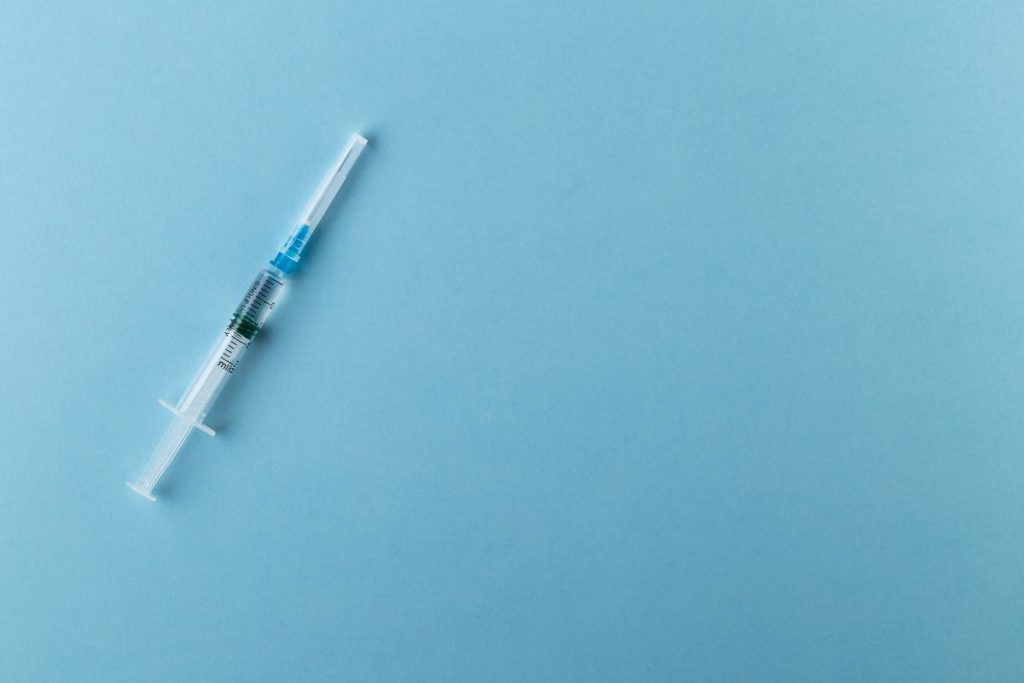Needle fixation occurs when injecting becomes compulsive, rewarding, and equal to or more important than the actual act of using the drug itself. Certain experts consider needle fixation a different addiction, with some referring to it as a behavioral addiction. A needle fixation can increase the risks accompanying injection drug use, such as infection, transmissible disease, and death. Not every individual who injects drugs will develop a needle fixation. But those who do, entertain thoughts and engage in behaviors are shaped by this compulsion.
If you or a loved one is struggling with addiction, consider Vertava Health’s substance abuse treatment programs. Call us today at 844.470.0410 to learn how we can help you start your journey to recovery.
Intravenous (IV) Drug Use: The Basics
Injecting drugs is the most invasive and dangerous way a drug user can administer a drug. To do this, an individual fills a needle or syringe with the desired drug. Intravenous drug users (IDUs) inject drugs in the following ways:
- Intramuscularly: Into the muscle
- Intravenously (IV): Into the vein
- Subcutaneously: Right below the skin
Some of the most addictive drugs known to man are used this way, including heroin, crack cocaine, methamphetamine, and morphine.
What Is a Needle Fixation?
A needle fixation is when a person compulsively uses needles. The individual’s fixation on needles either equals or surpasses their desire to use the drug. The act of injecting, in and of itself, provides a sense of reward, which is separate from the rush or high” of the drug.
Like other harmful behaviors surrounding substance use, a needle fixation is steeped in some very unhealthy and negative thoughts and behaviors, such as:
- Ritualization: A person becomes obsessed with preparing the needle for injection.
- Relishing the skill of injecting: Users claim that their skill at injecting increases their self-esteem.
- Substitution of other drugs or water: Some people may fixate on the injection so much that they turn to these substances if their drug isn’t available so that they can inject.
- Pleasure at injecting: The injection itself creates a sense of well-being and enhances the rush of the drug.
- Pursuit of pain: Certain individuals report liking the pain associated with the injection (masochism).
- Linked to deliberate self-harm: Some individuals inject as a means to harm or punish themselves purposely.
- Association with sex: Injection is linked to sexual pleasure and is a way to create intimacy.
Specifically, a person with a needle fixation may:
- Feel a rush simply by using the needle, even before the drug hits their system.
- Become sexually aroused by injecting, or being injected by, their partner.
- Find that they replace sex in increasing instances with the ritual of injection.
- Believe it would be harder to give up injection than the actual drug.
- Feel the process of preparing the needle for injection is more important than the high.
- Feel calm or more relaxed after they inject water.
- Enjoy the pain that results from the injection (either when injecting themself or when injected by others.)
- Become infatuated with the needle because of how they equate it to this pain.
- Pull blood in and out of the syringe before or following injection.
These behaviors can put a person in harm’s way. For instance, when a person injects a partner, especially if they equate a sexual feeling to the act, they are more apt to share needles. This practice drastically increases the risks associated with injecting. As these behaviors accompany drug use, comprehensive treatment should be sought which addresses both concerns.
How Do You Treat A Needle Fixation?
Many of the same modalities used to treat drug addiction may also benefit a person’s pursuit of overcoming their needle fixation. Behavioral therapies, such as cognitive behavioral therapy (CBT) and dialectical behavior therapy (DBT), can be impactful methods for treating impulse control, self-harm, abnormal sexual proclivities, and dysfunctional behaviors.
Find Needle Fixation Help at Vertava Health
A good treatment program can work to treat needle fixation and as well as addiction. If you’re interested in learning more about Vertava Health’s substance abuse treatment programs, contact us today at 844.470.0410


